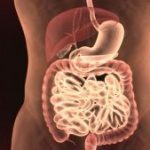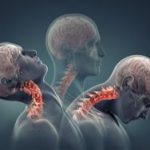Another week has gone by, which means it’s time for you weekly health news roundup. We have compiled a list of our best articles of the past week that you may have missed. We talked about colon spasms, a health problem that affects many Americans today. Urinary hesitancy, when you have difficulty starting or maintaining a steady urine stream. As well as chronic nonbacterial prostatitis, a condition that is characterized by swelling and inflammation of the prostate gland. To better round off your week, we have also included insightful information on perianal hematoma and cervical lordosis. We at Bel Marra take your health very seriously and what to make sure our readers are up to date on the latest news.
 What causes painful colon spasms? Symptoms and treatment options
What causes painful colon spasms? Symptoms and treatment options
Colon spasms are a health problem experienced by many Americans. People who have spasms in the colon often describe it as a sudden, severe contraction of the colon muscles. The spasms usually occur as a result of an underlying health condition.
Advertisement
The colon essentially refers to the large intestine. It is one of the parts of the digestive system that forms, stores, and excretes feces. A colon spasm can be physically and emotionally troubling. Those who suffer from spasms in the colon often cut themselves off from family and friends because they never know when an attack will strike or when they will suddenly need to run to the washroom. Continue reading…
 Urinary hesitancy: Causes, symptoms, and treatment
Urinary hesitancy: Causes, symptoms, and treatment
Urinary hesitancy is defined as having difficulty starting or maintaining a steady urine stream. The condition can occur at any age and affects both males and females. However, it is commonly seen in older men with an enlarged prostate gland. Urinary hesitancy develops over time, with suffers often facing problems with urination, dribbling, or not being able to urinate at all. If left untreated, it can lead to urine retention in the bladder and cause inflammation and discomfort. Continue reading…
 Cervical lordosis: Causes, symptoms, treatment, and prevention
Cervical lordosis: Causes, symptoms, treatment, and prevention
Cervical lordosis is a medical term referring to the degree of curvature of the human neck, pinpointing an exaggerated atypical inward curvature of the neck region. This curve is a physically desirable trait for humans to have, as if you were to lose this natural curvature, it could lead to several physical complications.
To fully understand this natural curvature of the neck, it is important to understand some other conditions involving the cervical lordosis. Continue reading…
 Perianal hematoma: Causes, symptoms, and treatment of perianal thrombosis
Perianal hematoma: Causes, symptoms, and treatment of perianal thrombosis
A perianal hematoma, also known as perianal thrombosis, is a hematoma located around the border of the anus. A hematoma is a localized collection of blood outside of blood vessels under the skin. Perianal hematomas are sometimes inappropriately referred to as external hemorrhoids.
Advertisement
Perianal hematomas can present over a short period of time and be extremely painful. They can be small or large in size, taking about three months to fully resolve. They may be caused by back pressure or the sudden rupture of veins, that can occur when you are straining during stool defecation or even during times of forceful coughing. Continue reading…
 Chronic nonbacterial prostatitis: Causes, symptoms, diagnosis, and treatment
Chronic nonbacterial prostatitis: Causes, symptoms, diagnosis, and treatment
Nonbacterial prostatitis is characterized by symptoms of prostatitis, swelling, and inflammation of the prostate gland, all without signs of bacterial infection in diagnostic tests. Generally, an infection of the bladder occurs due to infection from a particular bacterium, as seen in cases of acute bacterial prostatitis, prostatic abscess, chronic bacterial prostatitis, and bacterial prostatitis.
Chronic nonbacterial prostatitis can be a very time-consuming and difficult disease to treat. Doctors can only prescribe antibiotics on a trial basis in hopes that it will resolve the condition. Typically, these would help treat a case of bacterial prostatitis, but in cases of non-bacterial prostatitis, it may not. All testing produces only signs of inflammation, which can originate from any number of different causes. Continue reading…
